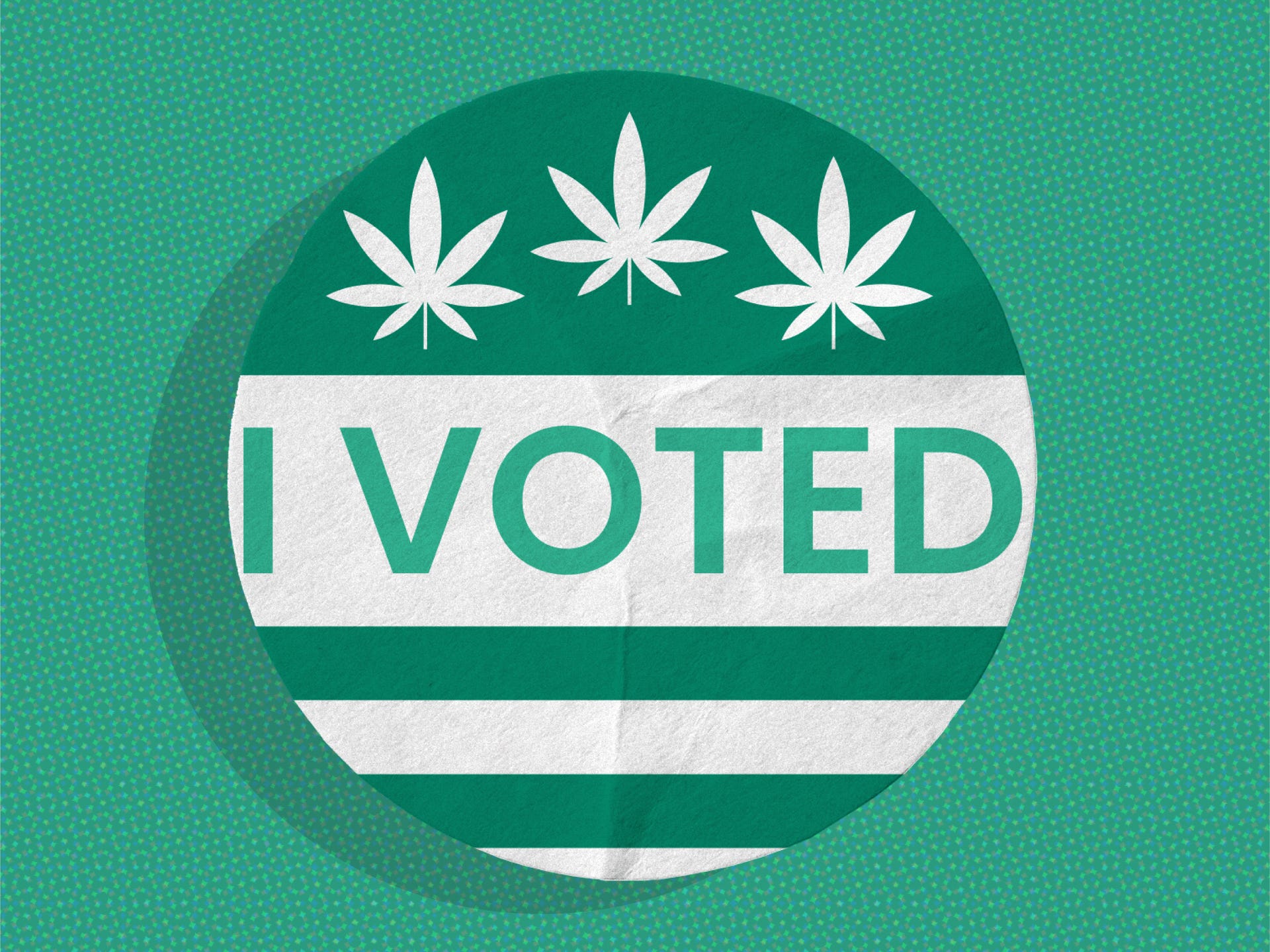
Legalization of marijuana in 2020 | Fifth Ave Green House
While the presidential election is still in the media, the medical and recreational cannabis election initiatives in five states (Arizona, Mississippi, Montana, New Jersey, and South Dakota) seem all but forgotten in the media. But those who went to polling stations in those five states certainly remembered.
Their votes ensured that every statewide legalization measure for marijuana was passed, as Arizona, Mississippi, Montana, New Jersey, and South Dakota were found to approve new medical marijuana programs in their states.
In 2012, Colorado and Washington led the way when voters voted for Legalization of the leisure pot.
Today thirteen states plus Washington DC have joined them.
More states that legalize cannabis are good for the national campaign. It’s a step closer to a nation that is united behind the cannabis industry. And while it will likely take a year or two for regulated cannabis to become available to consumers in these new cannabis rule-of-law states, the benefits are likely to last much longer.
This is what the new regulations could look like in Arizona, Mississippi, Montana, New Jersey, and South Dakota.
Arizona
The Smart & Safe Act, also known as Proposition 207, allows adults 21 and older to purchase and use regulated cannabis. Proposal 207 was passed with 60 percent approval of the electorate, although it was not supported by Governor Doug Doucey.
The Arizona Department of Health can license marijuana for retail, processing, and cultivation. Businesses can begin applying for these licenses in January 2021, with established medical marijuana growers having priority when applying.
According to an analysis by the Arizona Joint Legislative Budget Committee staff, the 16% sales tax and royalties payable to the industry are expected to raise $ 166 million annually.
In addition to covering administrative costs for regulation, the proceeds from legal cannabis will be distributed to firefighters, law enforcement agencies, community colleges, the Justice Reinvestment Fund for War on Drug Communities, and the Governor’s Office for Road Safety.
The election initiative also opens the way for those previously convicted of cannabis to remove them from their records.
Mississippi
While voters in Mississippi did not vote on recreational cannabis this year, they passed a constitutional amendment that allowed the use of medical marijuana for people with “debilitating diseases”.
Two initiatives were available to voters: Initiative 65 or Initiative 65A.
Initiative 65 enables 21 qualified diseases for medical marijuana. These include AIDS cancer, epilepsy, and PTSD. Laws allow physicians at their own discretion to recommend medical cannabis for other debilitating health conditions when “the use of medical marijuana would reasonably outweigh potential health risks.”
The program is overseen by the Department of Health in Mississippi and limits patient possession of cannabis to 2.5 ounces every two weeks. The sale of marijuana would be taxed at 7 percent or less. The regulations are expected to come into force by July 2021.
Alternative Initiative 65A left many implementation details to the state legislature to decide, and there were no listed requirements for qualification.
Around 67.9 percent of Mississippi voters were in favor of legalizing medical cannabis, with around 74 percent of those in favor of Initiative 65 over Alternative Action 65A.
Image from http: //www.redbubble.com/peopl …
Montana
Montana has passed two electoral initiatives in favor of recreational cannabis use. Initiative 118 changed the language in the state’s constitution, making the legal age of buying cannabis for adults 21. Initiative 190 legalized the recreational use of cannabis for adults. This allows adults 21 and older to own up to 1 ounce of cannabis and grow up to four plants in their private homes.
The Montana Treasury Department will oversee licensing and regulation and impose a 20 percent sales tax on all marijuana products. The revenue from regulated cannabis will be used to fund administration with the surplus to fund conservation programs, substance abuse treatment and prevention efforts, veterinary services, and health care. The initiative also enables individuals serving sentences for newly legalized marijuana-related offenses to reduce those sentences or remove charges. Licenses to grow, process, and retail marijuana will be accepted until January 1, 2022.
New Jersey
There was a landslide victory for cannabis in New Jersey, which got 67 percent of the electorate by Public question 1. This changes the New Jersey state constitution by adding a language that legalizes the use, growth, possession, transportation, and processing of cannabis for adults 21 and older. This change will take effect on January 1, 2021. Marijuana sales are taxed at a rate of 6.25 percent. Individual municipalities can increase sales tax rates by up to 2 percent within their limits.
Regulatory efforts are being led by the same organization that oversaw the medical marijuana program in New Jersey since 2010, the State Cannabis Regulatory Commission. Public Question 1 was supported by New Jersey Governor Phill Murphy, the only state governor who had cannabis on the ballot to support this.
South Dakota
In South Dakota, voters not only had the option to legalize medical marijuana under Measure 26, but also legalize recreational use under Amendment A.
While most states legalize medical marijuana first, the home of Mount Rushmore has given it its all and passed both, Measure 26 with 69.2 approval and Amendment A with a majority of 53.44 percent.
Adults over 21 can now legally own up to 1 ounce of cannabis and three marijuana plants. The South Dakota Department of Treasury will oversee licensing for the sale and production of cannabis with a sales tax of 15 percent. After paying for administration of licenses, etc., the remaining income goes to schools and general funds for the state in South Dakota. The measures require the state parliament to pass these laws by 2022.

Post a comment: